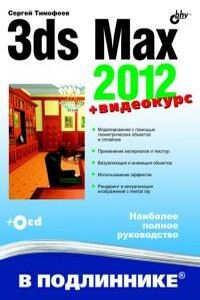Rust by Example | страница 13
>// Access the fields of the point
>println!("point coordinates: ({}, {})", point.x, point.y);
>// Make a new point by using struct update syntax to use the fields of our
>// other one
>let bottom_right = Point { x: 5.2, ..point };
>// `bottom_right.y` will be the same as `point.y` because we used that field
>// from `point`
>println!("second point: ({}, {})", bottom_right.x, bottom_right.y);
>// Destructure the point using a `let` binding
>let Point { x: top_edge, y: left_edge } = point;
>let _rectangle = Rectangle {
>// struct instantiation is an expression too
>top_left: Point { x: left_edge, y: top_edge },
>bottom_right: bottom_right,
>};
>// Instantiate a unit struct
>let _unit = Unit;
>// Instantiate a tuple struct
>let pair = Pair(1, 0.1);
>// Access the fields of a tuple struct
>println!("pair contains {:?} and {:?}", pair.0, pair.1);
>// Destructure a tuple struct
>let Pair(integer, decimal) = pair;
>println!("pair contains {:?} and {:?}", integer, decimal);
>}
>הההההההההההההההההההההההההההההההההההההההההההההההההההההההההההההההההההההההההההההההההההההההההההההההההההההההההההההההההההההההההההההההההההההההההההההההההההההההההההההההההההההההההההההההההההההההההההההההההההההההההההההההההההההההההההההההההההההההההההההההההההההההההההההההה
>XXXXXXXXXXXXXXXXXXXXXXXXXXXXXXXXXXXXXXXXXXXXXXXXXXXXXXXXXXXXXXXXXXXXXXXXXXXXXXXXXXXXXXXXXXXXXXXXXXXXXXXXXXXXXXXXXXXXXXXXXXXXXXXXXXXXXXXXXXXXXXXXXXXXXXXXXXXXXXXXXXXXXXXXXXXXXXXXXXXXXXXXXXXXXXXXXXXXXXXXXXXXXXXXXXXXXXXXXXXXXXXXXXXXXXXXXXXXXXXXXXXXXXXXXXXXXXXX
1. Add a function rect_area which calculates the area of a rectangle (try using nested destructuring).
2. Add a function square which takes a Point and a f32 as arguments, and returns a Rectangle with its lower left corner on the point, and a width and height corresponding to the f32.
The enum keyword allows the creation of a type which may be one of a few different variants. Any variant which is valid as a struct is also valid as an enum.
>// Create an `enum` to classify a web event. Note how both
>// names and type information together specify the variant:
>// `PageLoad != PageUnload` and `KeyPress(char) != Paste(String)`.
>// Each is different and independent.
>enum WebEvent {
>// An `enum` may either be `unit-like`,
>PageLoad,
>PageUnload,
>// like tuple structs,
>KeyPress(char),
>Paste(String),
>// or c-like structures.
>Click { x: i64, y: i64 },
>}
>// A function which takes a `WebEvent` enum as an argument and


